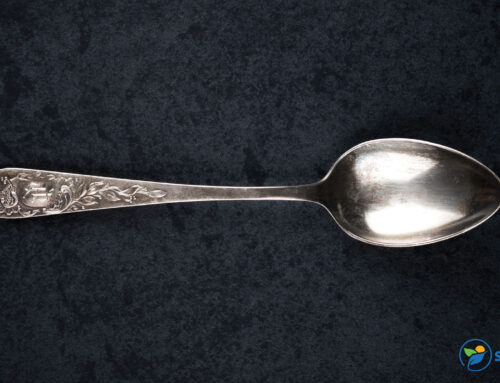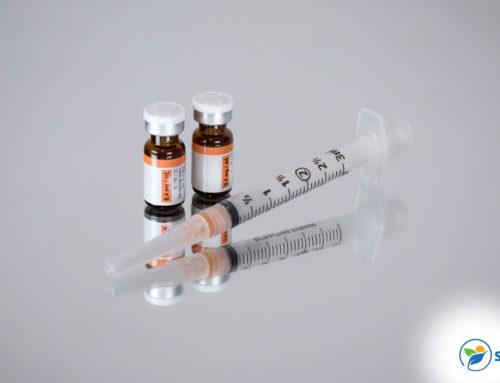Methamphetamine is one of the most addictive drugs in the world, and it has severe mental and physical effects. According to the 2019 National Survey on Drug Use and Health, roughly 184,000 Americans used meth for the first time that year. If you suspect someone you love is using methamphetamines, it can be difficult to know how to help a meth addict. But there are steps you can take to help your loved one turn their life around.
This process starts with recognizing the signs of methamphetamine abuse. Once you’ve identified the signs, it’s important to approach your loved one gently but firmly about their destructive behavior pattern. From there, it’s all about doing everything you can to push them to seek help and support them through the process.
Read on for more detailed information about identifying the signs of methamphetamine abuse, approaching your loved one about it and supporting their recovery.
Methamphetamine Use Disorder: Identifying the Signs
Identifying the signs of methamphetamine use can be crucial when you suspect a friend or loved one may be descending into addiction. There are four types of signs you should look out for.
Physical Signs
The physical signs of methamphetamine use include:
- Dilated pupils
- Excessive energy
- Hyperalertness
- Rapid weight loss
- Poor hygiene
- Neglect of physical appearance
- Nosebleeds
- Frequent runny or stuffy nose without a cold or respiratory infection
- Track marks on arms
Behavioral Signs
The behavioral signs of methamphetamine use include:
- Moodiness and irascibility
- Restlessness
- Hyperactivity
- Increased talkativeness
- Impulsive or risky behavior
- Changes in sleep patterns
- Paranoia
- Hallucinations
Psychological Signs
Psychological signs include:
- Intense mood swings (often characterized as intense euphoria followed by a brutal crash)
- Irritability
- Anxiety
- Panic attacks
- Poor concentration
- Poor memory
- Lack of motivation
- Loss of interest in hobbies
Social Signs
There are several key social signs of methamphetamine use or addiction. These include:
- Withdrawal from family and friends
- Loss of interest in social activities
- Association with new friends (often of dubious or disreputable character)
- Financial troubles
- Involvement in theft or illegal activities to procure funds
If you notice these signs in someone you care about, be sure to approach them with empathy and concern, not judgment or hostility. Encourage them to seek professional help, and support them throughout their journey to recovery. Remember, addiction is a complex issue, and more importantly, it’s a disease, not a character flaw. Your loved one needs love and support, not judgment.
How to Approach a Loved One About Methamphetamine Use
If you suspect a loved one is using methamphetamine, there are ways you can offer meth help without driving them away. Getting angry or blaming your loved one for their addiction won’t help and could make the situation worse. This is a disease they’re dealing with, not an attempt at rebellion or an intentional effort to sabotage their life. Therefore, you should first educate yourself about meth addiction and how it impacts both a user’s mind and their body. It might be a good idea to speak with a subject matter expert, such as an addiction counselor, for guidance on how to approach the situation.
When talking to your loved one, be careful not to agitate them while they’re either under the influence or going through withdrawal. Meth can cause paranoid behavior and hallucinations, so it’s important to stay calm and avoid criticizing or using an aggressive tone when talking to your loved one. Instead, offer to help them find treatment and support them through the process. Remind them that you’re on the same team and that your role in the process is not to judge or nag them but to be there for them through the ups and downs.
Supporting Recovery: How to Help a Meth Addict Seek Treatment
It can be difficult to figure out how to deal with a meth addict and nudge them into treatment. The first thing to remember is to stay calm and be patient. This isn’t a reality TV show where you can barge through the door and deliver a fiery come-to-Jesus speech and your loved one will immediately see the error of their ways and commit to treatment. In real life, a person high on meth or suffering withdrawal symptoms is more likely to vehemently resist the idea of getting help. Think marathon, not sprint.
What you should do instead when trying to deal with someone on meth is let them know first and above all that you’re there for them no matter what. Once they know that, they’ll often let their guard down and break out of their defensive posture. It might also help to speak with a professional from a facility such as Sunlight Recovery ahead of time so you’re armed with information and have a better idea what type of reaction to expect.
Self-Care for Family and Friends: Coping With a Loved One’s Methamphetamine Use
While getting your loved one into treatment and supporting them throughout their recovery is paramount, it’s also important to practice self-care during this time. Addiction can have a significant impact on the mental and physical health of loved ones. It can lead to exhaustion, anxiety, sleepless nights and strained relationships with the person suffering from addiction and with other loved ones.
The key is balance: offering your unwavering support while also setting boundaries and not letting your loved one’s addiction wreck your own life. One way to do this is to resolve to talk to your loved one only when they’re sober and clear-minded.
You can also help by staying informed on the latest treatment methods for meth addiction. According to a 2023 study, medical providers have had success with tactics such as motivational interviewing, addressing patients’ comorbid medical concerns and encouraging patients to decrease their use with a harm-reduction approach.
Remember, there’s no one-size-fits-all solution for something as complex and nuanced as how to deal with someone on meth. There’ll be ups and downs and steps forward followed by steps back. It’s a stressful, even harrowing process. That’s why self-care while supporting your loved one is critical.
The Importance of Professional Help: Guiding Someone Toward Treatment
Ultimately, treatment is the only way your loved one has a chance at long-term recovery from methamphetamine use. If you suspect someone you love is suffering from addiction, contact Sunlight Recovery today and speak with one of our compassionate addiction pros.






